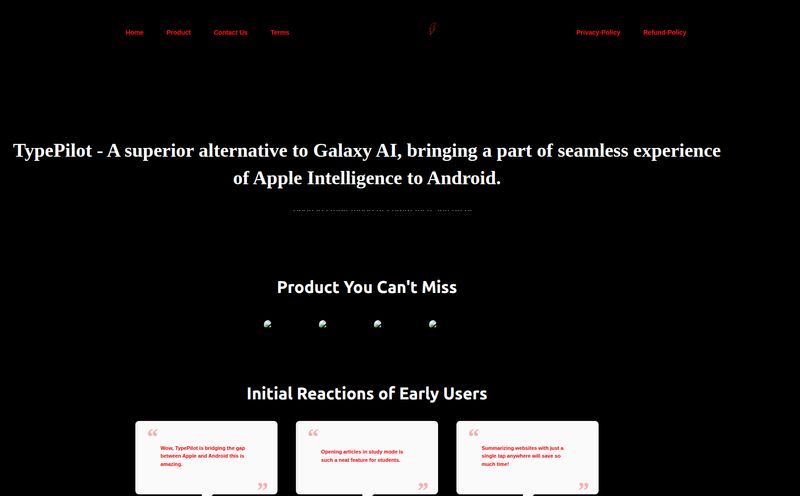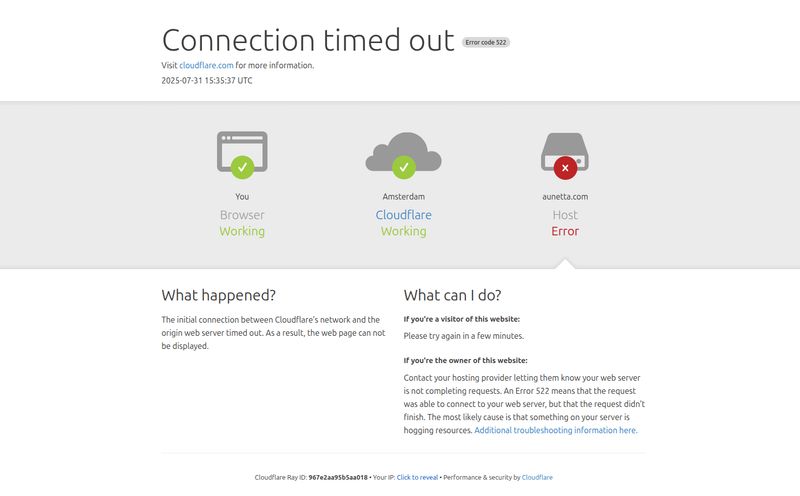I swear, if I see one more “revolutionary” wellness app, I might just throw my phone into the sea. As someone who’s spent years watching digital trends, I’ve seen the market get absolutely flooded. From meditation timers to mood trackers that feel more like homework than help, it's a lot of noise. But every now and then, something pops up on my radar that makes me lean in a little closer. Today, that something is Plutis.
It’s not just another app. It claims to be a full-blown mental health platform that adapts to your personal journey. That’s a bold claim. It promises a mix of AI-driven coaching and access to actual human professionals. So, is it just more marketing fluff, or is there something genuinely useful here? Let’s pull back the curtain.
So, What Exactly is Plutis?
At its core, Plutis is designed to be a flexible support system for your mental well-being. The big idea isn't to offer a one-size-fits-all solution, which, let's be honest, never really works for something as personal as mental health. Instead, it positions itself as a partner that learns and grows with you.
The platform is built on two main pillars: a smart, AI-powered coach and a network of specialized human providers. Think of it like a gym. You’ve got the high-tech equipment that can track your progress and give you instant feedback (the AI), but you also have access to expert personal trainers who can guide your form and help you with the heavy lifting (the human therapists). It’s this hybrid approach that really piqued my interest.

Visit Plutis
The Two Sides of the Plutis Coin: AI and Human Expertise
This is where things get interesting. The blend of technology and the human touch is what Plutis is betting the farm on. But are both sides equally strong?
Your Personal AI Mental Health Coach
The AI coaching is the shiny new object here. The promise is a supportive, responsive coach available 24/7. Feeling anxious at 3 AM? Your AI coach is there. Need to vent about something without fear of judgment? It’s ready to listen. In theory, this is incredible. It removes the friction of scheduling and the potential awkwardness of opening up to a stranger for the first time.
I see this AI as a sort of mental health sparring partner. It can help you practice cognitive-behavioral techniques, work through thought patterns, and build healthier habits in real-time. It's a fantastic concept for day-to-day maintenance and for those moments when you just need something right now.
Connecting with Specialized Providers
But let's be real, an AI can only go so far. For the deep, complex, and uniquely human struggles, you need a person. Plutis claims to provide access to specialized mental health providers. This is the part that I, and probably you, care most about. Having a qualified professional to talk to is non-negotiable for serious mental health care.
This is where I have to put on my skeptical hat. The provided info is a bit light on the details of who these providers are and how they're vetted. Are they licensed therapists, counselors, psychologists? What are their qualifications? Before jumping in, I'd want to know a lot more about the professionals on the platform. Any good platform should make this information crystal clear.
A Frank Look at the Plutis Experience
No platform is perfect. I’ve been in the SEO and digital marketing game long enough to know that everything comes with its own set of strengths and quirks. Here’s my honest breakdown.
What I Like About the Plutis Approach
The biggest pro here is the personalization. The idea that a platform can adapt to my needs instead of forcing me into a rigid program is a huge plus. We all have different needs, and they change over time. A platform that can change with you is powerful. The convenience is another obvious win. Accessing support from your couch is a game-changer, removing barriers like travel and scheduling conflicts that stop so many people from seeking help.
And I have to come back to the hybrid model. I believe this is the future. Using AI for daily check-ins and skill-building while having a human expert on call for deeper issues feels like a sustainable and effective model for modern mental health care.
Some Lingering Questions and Considerations
Okay, let's talk about the hesitations. The info mentions that you need to create an account. Honestly, that’s standard practice and not a real con in my book. The real questions are deeper.
First, how effective is the AI, really? Is it a glorified chatbot running on simple scripts, or is it a genuinely sophisticated tool that can understand nuance? The effectiveness could vary wildly from person to person. I’d go in with a healthy dose of curiosity mixed with skepticism. Second, as I mentioned before, the qualifications of the human providers are a massive question mark. This isn't like finding a plumber; these are people you're trusting with your mental well-being. Transparency here is absolutly critical.
The Million-Dollar Question: What's the Price Tag?
Right now, your guess is as good as mine. The provided information doesn’t touch on pricing, and a quick search doesn’t reveal a clear pricing page just yet. This isn't uncommon for new platforms that might be in a beta phase or still figuring out their model.
Typically, services like this operate on a subscription model (a monthly fee for a certain level of access), a per-session basis for human therapy, or a tiered system. I’d also be looking to see if they work with insurance providers, which can make a huge difference in accessibility. My advice? Head directly to their official website and look for a pricing or FAQ section. If it's not there, don't be afraid to reach out to their support team directly.
So, Who is Plutis Really For?
Based on its structure, I can see Plutis being a great fit for a few different types of people. It seems ideal for the tech-savvy individual who is comfortable interacting with AI and wants a modern approach to mental wellness. It could also be a fantastic tool for someone who is already in traditional therapy but wants a supplemental resource for in-between sessions. It could even be a gentle entry point for someone who’s been hesitant to try therapy, allowing them to test the waters with the AI coach before committing to a human conversation.
If you're looking for an instant replacement for deep, intensive psychotherapy for a severe condition, this might not be it. But if you're seeking to build resilience, manage daily stress, and have a support system in your pocket, Plutis seems to be aiming right for you.
Final Thoughts from an Old-School SEO Guy
When all is said and done, Plutis represents a trend I’ve been watching for years: the intersection of technology and deeply human needs. The concept is solid. It's smart. It's forward-thinking. But as with any service, especially in healthcare, the devil is in the details. The execution of the AI and the quality of the human profesionals will be the true measure of its success.
I’m optimistic but cautious. It’s a space with incredible potential to do good, and I’m genuinely excited to see how platforms like Plutis evolve. It's a reminder that the best technology doesn't seek to replace us, but to augment our abilities and fill in the gaps. And in mental health, those gaps can make all the difference.
Frequently Asked Questions About Plutis
- What is Plutis?
- Plutis is a mental health platform that combines AI-based coaching with access to specialized human mental health providers. It's designed to offer personalized support that adapts to your individual needs and mental wellness journey.
- How does the AI coaching on Plutis work?
- The AI coach is available 24/7 to provide immediate support. It acts as a tool to help you work through thought patterns, practice coping techniques, and build healthy mental habits in real-time, functioning as an on-demand resource in your pocket.
- Can I talk to a real person on Plutis?
- Yes. A core feature of Plutis is providing access to specialized human mental health providers. This allows you to connect with a professional for deeper, more nuanced conversations and guidance that an AI cannot provide.
- Is Plutis a replacement for traditional therapy?
- It can be viewed as both a primary support tool and a supplement. For some, it may provide all the support they need. For others with more intensive needs, it may serve as a valuable resource to use alongside traditional therapy. It's best to assess your own personal needs to decide.
- How much does Plutis cost?
- Pricing information for Plutis is not publicly available at this time. It's recommended to visit the official Plutis website or contact their support for the most current details on subscriptions, session costs, or potential insurance coverage.
- Is my personal information safe with Plutis?
- While we can't speak for Plutis directly, any reputable mental health platform operating in the U.S. should be HIPAA compliant to protect your sensitive health information. Always look for a platform's privacy policy and terms of service to understand how your data is handled.
Reference and Sources
- For more on the trends in digital health, the Global Health Care Outlook from Deloitte provides excellent context on the industry's direction.



